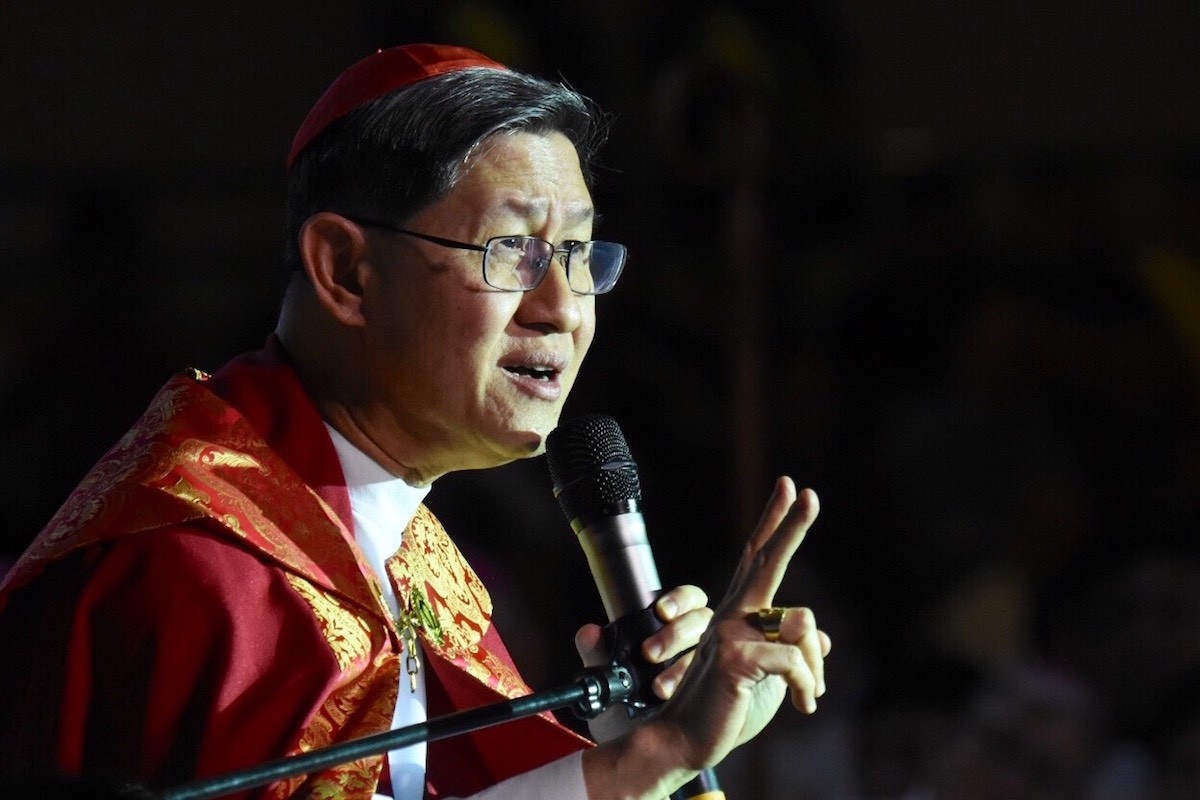Cardinal Luis Antonio Tagle, president of Caritas Internationalis, said the conflict in Ukraine challenges every Christian to “show the goodness of the spirit in the human person.”
“No gun can kill hope,” he said, adding that there are “so many testimonies to this.”
“The hope in Jesus Christ and His Resurrection is true and is seen precisely in the testimony of so many people,” said the cardinal in an interview released by Vatican News.
“As Christians, we must trust that hope is always in God,” said the cardinal.
“In this season of Lent, the Church, through the Readings, invites us to renew our hope in Jesus Christ. And this hope means the triumph of love, of mercy,” he said.
The cardinal said he feels “sad” seeing the images, hearing the news “and being close to this place where there is war.”
“I feel sad and also a bit confused because humanity has not learned the lessons of history. After so much war and destruction, we remain so hard at heart,” he said.
“When I listen to the stories of my parents who lived through World War II, I can’t imagine — not even imagine — the poverty, the suffering they endured. That generation continues to carry the wounds of war in their bodies as well, and they still have a wounded state of mind. When, when will we learn? Those are my feelings. We truly hope that we will learn from the lessons of history,” said Cardinal Tagle.
He said the “biggest challenge” of the Caritas family network “is what is precisely inscribed in its mission.”
“The mission to always remind the world that every conflict, every disaster has a human face,” he said.
The cardinal said Caritas’ response is always “humanitarian.”
“For example, the war in Ukraine and conflicts in other countries of the world are generally presented as political, military conflicts but people are forgotten. With our mission, Caritas reminds the world that war is not a military, political issue, but it is, first of all, a human issue,” he said.
“The Ukrainian people are giving an incredible testimony of courage, while its neighboring countries — in particular, we think of Poland, Romania — are offering a testimony of exceptional solidarity,” said the cardinal.
“What lesson can we learn, we who are ‘near’ but still far from this war in Ukraine?” he asked.
“We must be grateful for the witness of the people in Ukraine and in neighboring countries and even of those further away who are sending aid and offering assistance,” he said.
“The lesson for me is this: in the desert of violence, the human person has the capacity to be good. The lesson for me is that even in a bad situation like war, a better humanity can emerge,” said Cardinal Tagle.
“But there is a challenge: the formation of the heart, of the mind. Conflicts, how do they begin? In the heart, in the decision of people,” he said.
“The lesson lies in the way families form their children in the values of respect for others, of listening, of compassion, of choosing a path of justice, of dialogue instead of revenge, of violence.
“Is there a story, an image from this war — we are hearing about and seeing so many — that has struck you in a particular way, that somewhat represents the pain but also the strength, the goodness of people?
“It is difficult to choose, but — perhaps as a Christian and as a bishop — the images that struck me most are those of people praying.”
He said it is the “faith of the mothers kneeling before the Sacrament.”
“Prayer, the network of prayer that unites humanity, for me, is a sign of hope despite the war,” said Cardinal Tagle.
